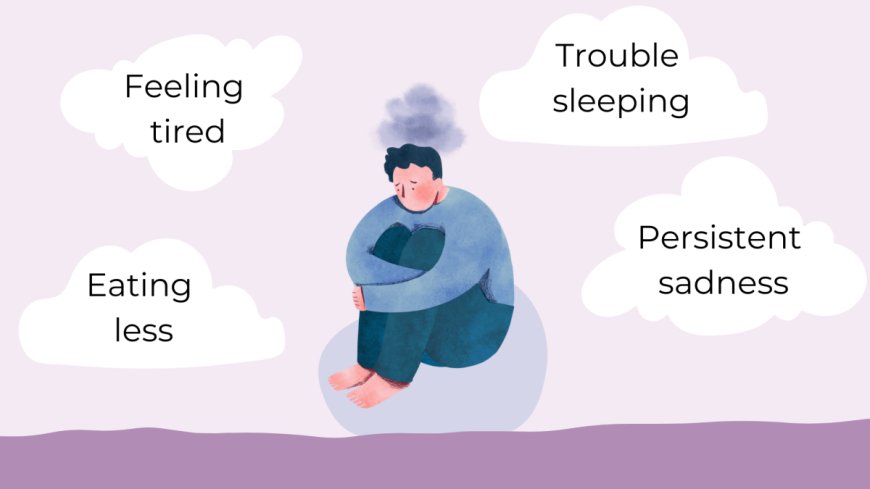"Unraveling the Depths of Teenage Depression: Understanding, Healing, and Hope"
Discover profound insights into the complexities of teenage depression, uncovering the path to healing and finding hope amidst the shadows.
Teenage depression is a complex and often misunderstood mental health issue that affects a significant number of adolescents worldwide. This article aims to delve into the various facets of teenage depression, exploring its causes, symptoms, and potential interventions to foster a better understanding and promote mental well-being among teenagers.
Prevalence and Importance:
Teenage depression is a prevalent concern, with statistics indicating that approximately 20% of adolescents experience depressive episodes before reaching adulthood. Acknowledging the importance of addressing this issue is crucial, as untreated depression can have severe consequences, affecting academic performance, relationships, and overall quality of life.
Causes of Teenage Depression:
Several factors contribute to the development of teenage depression, including biological, environmental, and psychological elements. Genetics, imbalances in brain chemicals, family history, and traumatic life events can all play significant roles. Moreover, the pressures of academic performance, social expectations, and hormonal changes during adolescence contribute to the vulnerability of teenagers to depression.
Recognizing the Signs:
Understanding the signs and symptoms of teenage depression is paramount for early intervention. Common indicators include persistent sadness, withdrawal from social activities, changes in sleep patterns, irritability, and a decline in academic performance. It is essential for parents, teachers, and peers to be vigilant and supportive, creating an environment where teenagers feel comfortable expressing their emotions.
Impact on Academic Performance:
Teenage depression can have profound effects on academic achievement. Students grappling with depression often struggle to concentrate, experience a lack of motivation, and may exhibit a decline in grades. Addressing mental health concerns in educational settings is crucial to fostering a supportive environment and helping teenagers overcome the challenges they face.
Social Isolation and Relationships:
Depression can lead to social withdrawal, making it difficult for teenagers to maintain healthy relationships. Feelings of isolation, coupled with the stigma surrounding mental health, can exacerbate the impact of depression. It is essential for parents, educators, and friends to offer a non-judgmental space for open communication and support.
Prevention and Resilience:
Preventive measures and resilience-building strategies can play a crucial role in mitigating the risk of teenage depression. Implementing mental health education programs in schools, promoting healthy coping mechanisms, and encouraging a supportive family environment can contribute to building resilience in teenagers.
Parental Involvement:
Parents play a pivotal role in supporting their teenagers' mental health. Open communication, active listening, and providing a nurturing environment can create a foundation for emotional well-being. Additionally, being aware of the signs of depression and seeking professional help when necessary are vital steps for parents in addressing teenage depression.
Peer Support and Community Involvement:
Peers can be a valuable source of support for teenagers facing depression. Creating a culture of empathy and understanding within peer groups, as well as fostering community involvement, can help reduce the isolation that often accompanies depression.
School-Based Mental Health Initiatives:
In recent years, there has been a growing recognition of the need for school-based mental health initiatives. Integrating mental health education into the curriculum, training teachers to identify signs of depression, and establishing counseling services within schools can contribute significantly to early intervention. Schools become not just places of academic learning but also hubs for fostering emotional well-being.
Cultural Sensitivity and Diversity:
It is crucial to recognize the cultural dimensions of teenage depression. Different cultures may have varying perspectives on mental health, and the stigma associated with it can differ. Mental health awareness campaigns should be culturally sensitive, acknowledging diverse beliefs and practices. Tailoring interventions to be inclusive and respectful of cultural nuances ensures that no teenager is left behind in the effort to address depression.
Understanding Co-occurring Issues:
Teenage depression often coexists with other mental health issues, such as anxiety disorders or substance abuse. A comprehensive approach to treatment should take into account the interconnected nature of these challenges. Mental health professionals should be trained to identify and address co-occurring issues, providing holistic care to teenagers facing complex mental health concerns.
Media Literacy and Mental Health:
Given the pervasive influence of media on teenagers, promoting media literacy is essential. Educating adolescents about discerning between realistic portrayals and idealized images can help reduce the impact of media-induced stressors. Additionally, media outlets can contribute to mental health awareness by responsibly portraying mental health issues and promoting positive narratives.
Long-term Outlook and Relapse Prevention:
Recovery from teenage depression is an ongoing process, and a long-term outlook is essential. Relapse prevention strategies, including ongoing therapy, support groups, and developing healthy coping mechanisms, are critical components of sustained mental health. Encouraging teenagers to understand and manage their mental health as part of their overall well-being sets the foundation for a healthier adulthood.
Community Support:
Communities play a vital role in addressing teenage depression. Local organizations, community centers, and advocacy groups can collaborate to create a supportive environment. By organizing events, workshops, and awareness campaigns, communities can contribute to breaking down the stigma associated with mental health and fostering an atmosphere where teenagers feel understood and supported.
Parental Education:
Providing parents with education on teenage depression and offering support groups can be instrumental in creating a network of understanding and shared experiences. Parental involvement is not only crucial in recognizing signs of depression but also in fostering an environment where teenagers feel comfortable discussing their mental health concerns with their families.
Government Policies:
Government policies play a significant role in shaping the landscape of mental health support for teenagers. Adequate funding for mental health resources in schools, accessible mental health services, and policies that promote mental health awareness contribute to creating a system that prioritizes the well-being of adolescents.
Conclusion:
Addressing teenage depression requires a multifaceted and collaborative approach involving parents, educators, mental health professionals, communities, and policymakers. By fostering understanding, reducing stigma, and implementing comprehensive strategies, we can create an environment that promotes the mental well-being of teenagers. Every effort, whether at an individual, community, or societal level, contributes to a collective journey towards supporting teenagers in navigating the challenges of mental health and building a foundation for a healthier future.
What's Your Reaction?











































